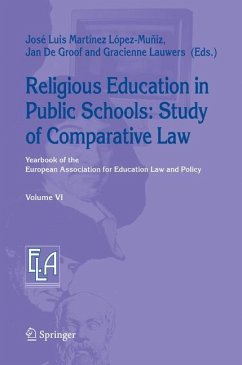
Moral Education
Beyond the Teaching of Right and Wrong
Versandkostenfrei!
Versandfertig in 1-2 Wochen
115,99 €
inkl. MwSt.
Weitere Ausgaben:

PAYBACK Punkte
58 °P sammeln!
Casual reference to moral education or the manner in which young people should be brought up to behave may provoke a range of responses depending on the context and the personalities and ideological perspectives of those present. In the past, these responses sometimes included a Rousseauesque assertion of the inherent goodness of all human beings, which only needed to be left to emerge uncorrupted and undistorted, with the help of infinite loving-kindness on the part of teachers, all with the patience of saints. More extreme versions of this view may have comprised vehement protest at the very...
Casual reference to moral education or the manner in which young people should be brought up to behave may provoke a range of responses depending on the context and the personalities and ideological perspectives of those present. In the past, these responses sometimes included a Rousseauesque assertion of the inherent goodness of all human beings, which only needed to be left to emerge uncorrupted and undistorted, with the help of infinite loving-kindness on the part of teachers, all with the patience of saints. More extreme versions of this view may have comprised vehement protest at the very idea of the state, through its educational institutions, concerning itself at all with such matters, which were felt to be properly the province of the family or religious organisations, if not a matter of individual choice for young people themselves when they were grown up. Explicit proposals for moral education were invariably at risk of being perceived as indoctrination or an abuse of children's rights of freedom and autonomous development. More frequently these days, the response may be a succinct list of the speaker's own choice moral prescriptions, an assertion that these need to be inculcated in a clear and unequivocal way to all young people of whatever age, inclination or social experience and, often enough, a statement of the sanctions to be applied to those who do not or will not conform.














